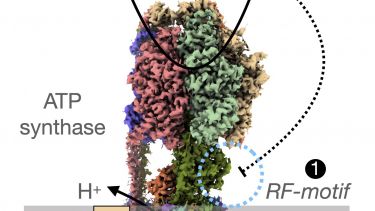Explaining the context of new grant Matt said "Life on earth depends on photosynthesis, the source of our food, oxygen and most of our energy. Photosynthesis happens in the chloroplasts of plant cells. Herein, sunlight is used to energise electrons and charge-up a proton battery, that can be harnessed by ATP synthase to make ATP- life’s universal energy currency. Plants use the energised electrons and ATP to fix CO2 into biomass, powering their growth and development. A curious feature of plant chloroplasts is the fact that the proton battery is ‘over-energised’, in other words the power in the battery is not fully utilised to make ATP. Rather, when a certain threshold level of ATP is reached the ATP synthase enzyme becomes shackled, allowing part of the proton battery to be conserved. The rationale is that the proton battery also protects the plant from the harmful effects of excess light, thus energy production is balanced with photoprotection. How plants do this remains one of the major unresolved questions in plant science."
"In a major breakthrough we believe we have now discovered the molecular component of the ATP synthase that acts as the ‘shackle’. We believe that studying mutant plants that lack this shackle will provide the crucial knowledge we need to understand how ATP synthase functions and that by genetically ‘re-wiring’ this mutant we may even be able to harness this ‘extra’ ATP to produce bigger plants for food and biofuel production.

